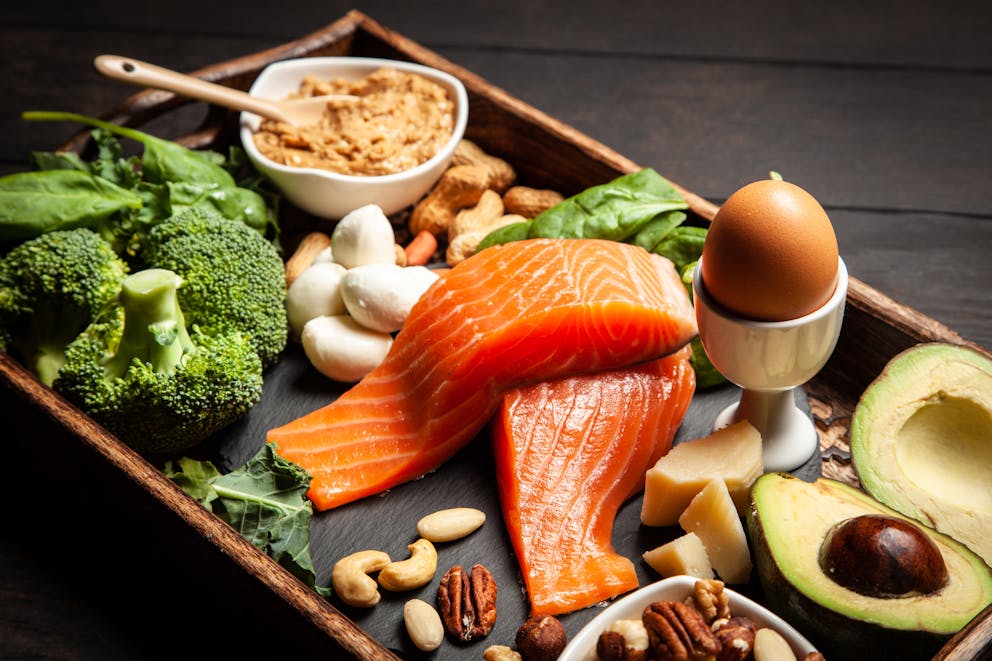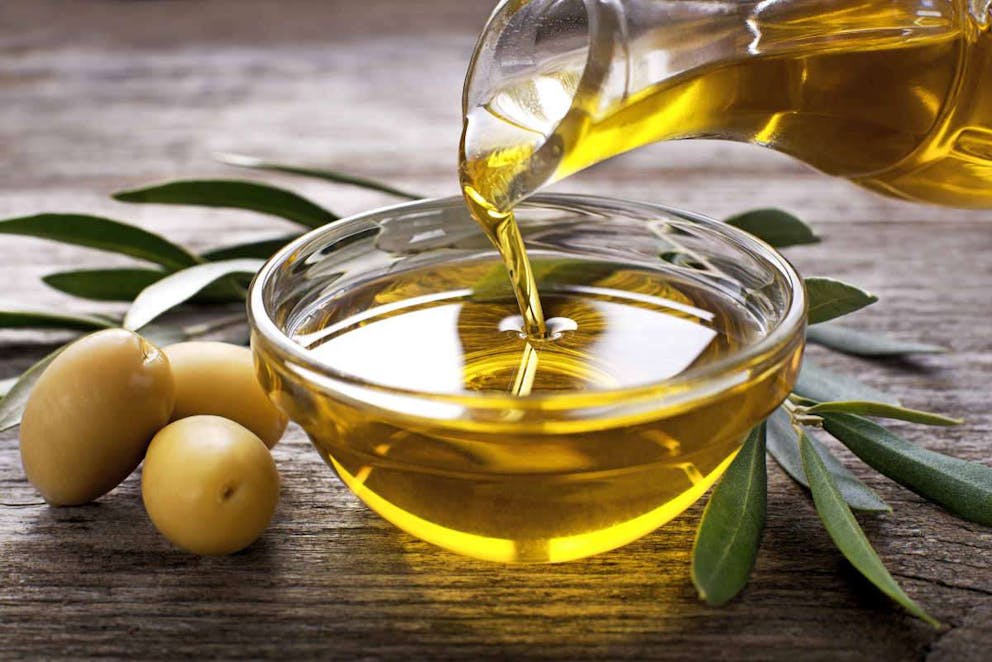The 4 Health Benefits of Olives
Olives - they're not just a tasty addition to your martini or pizza. These little powerhouses are packed with nutrients that can do wonders for your health. I'm talking about everything from protecting your heart to fighting off cancer cells.
And the best part? They're so easy to incorporate into your diet.
But here's the thing: most people have no idea just how good olives are for them. That's why I'm here to spill the beans (or should I say, the pits?) and give you the lowdown on all the incredible health benefits of olives.
Trust me, by the end of this, you'll be reaching for a handful of these little gems every chance you get.
Nutritional Profile of Olives
Olives are a nutritional powerhouse, packed with essential vitamins and minerals that support overall health. One of the standout nutrients in olives is vitamin E, a potent antioxidant that plays a crucial role in protecting our cells from oxidative stress.
The Role of Vitamin E in Antioxidant Defense
Vitamin E is a fat-soluble vitamin that acts as a powerful antioxidant in the body. It helps neutralize harmful free radicals, which are unstable molecules that can damage cells and contribute to chronic diseases like heart disease and cancer.
By consuming olives, you're providing your body with a natural source of vitamin E to bolster your antioxidant defenses.
Iron, Copper, and Calcium - Minerals for Health
In addition to vitamin E, olives are also rich in essential minerals like iron, copper, and calcium. Iron is necessary for the production of hemoglobin, a protein in red blood cells that carries oxygen throughout the body.
Copper plays a role in the formation of collagen, a protein that provides structure to our skin, bones, and connective tissues. Calcium, of course, is crucial for maintaining strong bones and teeth.
One study published in the Journal of Food Science and Technology found that olives are an excellent source of these essential minerals, with 100 grams of olives providing up to 3.3 mg of iron, 0.25 mg of copper, and 88 mg of calcium.
The Heart-Healthy Fats of Olives
Olives are known for their high content of healthy fats, particularly monounsaturated fatty acids (MUFAs). The most abundant MUFA in olives is oleic acid, which has been shown to have numerous health benefits, especially for the heart.
Oleic Acid and Its Anti-Inflammatory Properties
Oleic acid is a type of omega-9 fatty acid that has potent anti-inflammatory properties. Chronic inflammation is a key driver of many diseases, including heart disease, diabetes, and certain cancers.
By consuming olives and olive oil, you're providing your body with a natural source of oleic acid to help combat inflammation at the cellular level.
A study published in the journal Annals of Oncology found that oleic acid, the main monounsaturated fatty acid in olive oil, can suppress the expression of the Her-2/neu oncogene, which plays a role in the development and progression of breast cancer. The study also found that oleic acid enhances the effects of the breast cancer drug trastuzumab (Herceptin).
Monounsaturated Fats - A Key to Healthy Hearts
In addition to their anti-inflammatory effects, the monounsaturated fats in olives have been shown to support heart health by improving cholesterol levels and reducing the risk of heart disease.
MUFAs help lower levels of LDL (bad) cholesterol while increasing levels of HDL (good) cholesterol, which helps remove excess cholesterol from the bloodstream.
A study published in the European Journal of Clinical Nutrition found that a diet rich in monounsaturated fats from olive oil significantly reduced the risk of heart disease in a group of over 7,000 adults.
Low-Carb Nature and Digestive Health Benefits
Olives are a low-carb food, with only 4-6% of their total weight coming from carbohydrates. This makes them an excellent snack option for people following low-carb or ketogenic diets.

The Keto-Friendly Snack
The ketogenic diet is a high-fat, low-carb eating plan that has gained popularity recently for its potential weight loss and health benefits. Olives fit perfectly into a ketogenic diet, as they are high in healthy fats and low in carbs.
Snacking on olives can help you stay in ketosis, a metabolic state in which your body burns fat for fuel instead of carbohydrates.
Fermentation's Role in Reducing Lectins
Olives undergo a fermentation process that enhances their flavor and makes them more digestible by reducing harmful compounds called lectins.
Lectins are proteins found in many plant foods that can interfere with nutrient absorption and cause digestive issues in some people.
The fermentation process used to cure olives helps break down lectins, making the olives easier to digest and less likely to cause gastrointestinal discomfort. This is good news for people with sensitive digestive systems or those following lectin-free diets.
Phytonutrients and Their Health Benefits
Olives are a rich source of phytonutrients, which are natural compounds found in plants that have beneficial effects on human health. These compounds work synergistically with vitamins, minerals, and other nutrients to provide a wide range of health benefits.
Fighting Inflammation with Phytonutrients
One of the key ways that phytonutrients in olives promote health is by fighting inflammation. Chronic inflammation is a root cause of many diseases, including heart disease, diabetes, and certain cancers.
The phytonutrients in olives, such as oleuropein and hydroxytyrosol, have potent anti-inflammatory effects that can help reduce the risk of these diseases.
A study published in the European Journal of Nutrition found that consuming olive oil rich in polyphenols (a type of phytonutrient) significantly reduced markers of inflammation in the body.
Potential Anti-Cancer Properties of Olives
Some of the phytonutrients in olives have also shown promise in fighting cancer. For example, oleuropein has been shown to have anti-tumor effects in animal studies, while hydroxytyrosol has been found to induce cell death in human colon cancer cells.
While more research is needed to fully understand the anti-cancer potential of olives, these early findings suggest that including olives as part of a healthy diet may help reduce the risk of certain types of cancer.
Olive Leaf Extract and Its Medicinal Uses
In addition to the fruit, the leaves of the olive tree have also been used for medicinal purposes for centuries.
Olive leaf extract, which is made from the leaves of the olive tree, contains high levels of polyphenols and other beneficial compounds that have a wide range of health benefits.
Natural Remedy for Viral Infections
One of the most promising medicinal uses of olive leaf extract is as a natural remedy for viral infections.
The main active compound in olive leaf extract, oleuropein, has been shown to have potent antiviral effects against a variety of viruses, including the common cold, influenza, and even HIV.
A study published in the journal Biochemical and Biophysical Research Communications found that oleuropein inhibited the replication of the influenza virus in cell cultures.
Antihistamine Effects for Allergy Relief
Olive leaf extract also has antihistamine properties, which means it can help relieve symptoms of allergies and hay fever. Histamine is a compound released by the body during an allergic reaction, causing symptoms like sneezing, itching, and watery eyes.
The flavonoids in olive leaf extract have been shown to inhibit the release of histamine from mast cells, which can help reduce allergy symptoms.
A study published in the journal Phytotherapy Research found that olive leaf extract significantly reduced hay fever symptoms in a group of volunteers.

Olive Odyssey
Delve into a flavorful exploration of the surprising health benefits of olives and their compatibility with the keto lifestyle. Olives, renowned for their rich taste and versatility, offer a treasure trove of nutrients like healthy fats, antioxidants, and vitamins.
But the question remains: are olives keto? The answer is a resounding yes. Olives are low in carbohydrates and high in healthy fats, making them an ideal snack or addition to keto-friendly meals.
Their moderate protein content also fits well within the macronutrient profile of the ketogenic diet. Whether enjoyed whole, sliced, or pressed into oil, olives can add a burst of flavor and nutritional value to your keto journey, enhancing both taste and health along the way.
Conclusion
So there you have it - the incredible health benefits of olives. For something so small, they carry big benefits - from cheering up your heart to possibly keeping cancer in check.
And with so many delicious ways to enjoy them, there's no excuse not to make olives a regular part of your diet.
But don't just take my word for it. Try incorporating olives into your meals and snacks, and see how you feel. Your body will thank you for giving it all those amazing nutrients and healthy fats. And who knows - you might just discover a new favorite food in the process.
The health benefits of olives are too good to ignore. So go ahead, embrace your inner olive lover, and start reaping the rewards today. Your taste buds and your body will be forever grateful.
Previous blog
Diabetes Stats Soaring Worldwide Out of ControlTags

Popular
08/21/2024
55K views
02/23/2025
46.3K views
11/18/2024
277.7K views
03/18/2024
11/21/2022




